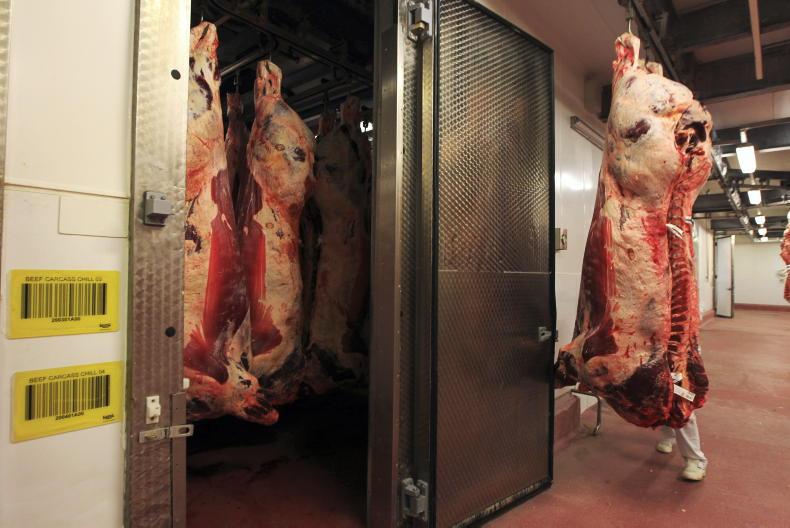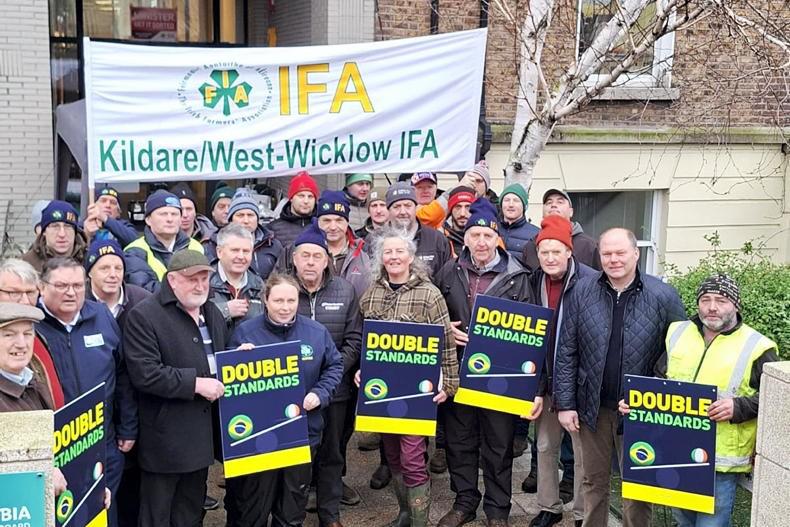ICSA president Patrick Kent called for a review of the beef grid at the event in Abbeyleix, Co Laois.
"ICSA believes that it is now urgent to move to payment on meat yield and that farmers should get some of the benefits from the fifth quarter bonanza," he said.
He added that recent Irish Farmers Journal analysis of Bord Bia's export figures for offal and hides was not far off the €150/head of cattle he had suggested several years ago, only to be "laughed at".
Listen to "ICSA calls for beef grading overhaul" on Spreaker.
Newly-elected ICSA beef chairman Edmund Graham added that the grading machines in factories should be upgraded.
"They seem not to be fit for purpose anymore, there's too many problems with them," he said, mentioning faulty bulbs and interference from sunlight and steam on the factory floors.
We’re at the @ICSAIreland AGM In Abbeyleix where Edmund Graham from Monaghan has just been elected beef chair and Seamus Sherlock was re-elected rural development chair. pic.twitter.com/3dfUCyaog0
— Farmers Journal (@farmersjournal) January 25, 2018
Kent placed a higher priority on restructuring beef pricing than on increasing suckler payments.
A €200/cow support scheme is a key demand of the ongoing Irish Farmers Journal campaign "Save our sucklers".
There is no point in a €200 sticking plaster unless suckler beef is marketed as a premium product
"There is no point in a €200 sticking plaster unless suckler beef is marketed as a premium product with premium animal welfare, environment and eating quality badges," the ICSA president said.
"If we are serious about sucklers, factories must commit to paying for heavy U grade carcasses...it’s not about how many suckler cows we have; it’s about how much profit each suckler cow leaves."
'No exodus' from sucklers
Minister for Agriculture Michael Creed went further, saying that a €200/cow coupled payment would "drive numbers at the expense of quality and climate change".
He argued that the €200m annual budget required would amount to an 18% to 19% cut to all BPS payments and that "there isn't a massive exodus of people from suckler cows", with a 6% drop in head count compared with the 30% predicted when milk quotas ended.
There were different views in the room, however.
Suckler farmer Jimmy Cosgrave said that his industry was "the poor relation in the chain" and needed support to generate a sustainable income.
Taking up the minister's 6% reduction in suckler cow numbers, he said: "If this trend continues, in a few years it will be 30%."
CAP and environment
With the next CAP widely expected to place more emphasis on the environment, Kent said farmers were ready to implement climate change programmes.
"But the day of expecting farmers to work for free must end. The next CAP must be designed on the principle that those farmers who go the extra mile get paid," he said, calling for sufficient CAP funding.
He insisted that livestock farming was not the main cause of climate change at the global level, adding: "We are sick and tired of being lectured by vested interests, by misguided environmentalists and by animal rights extremists."









SHARING OPTIONS